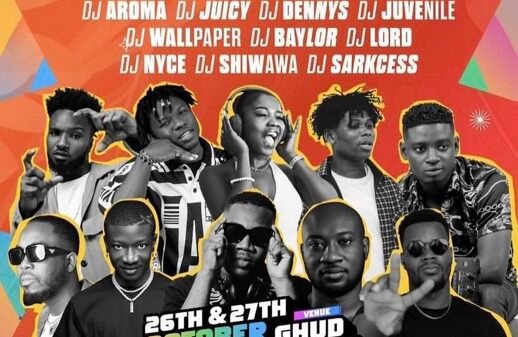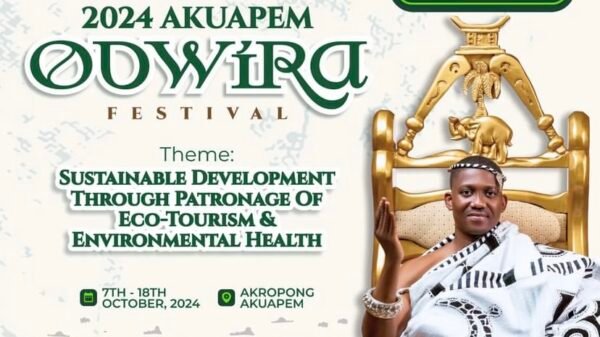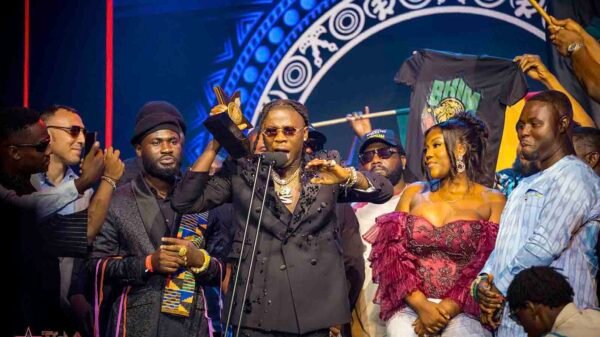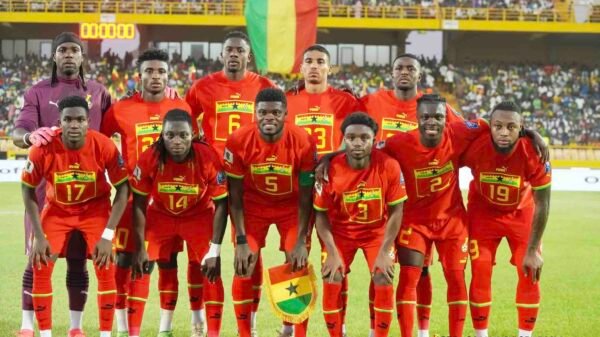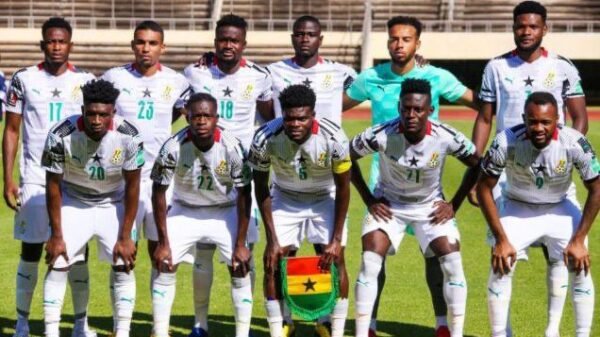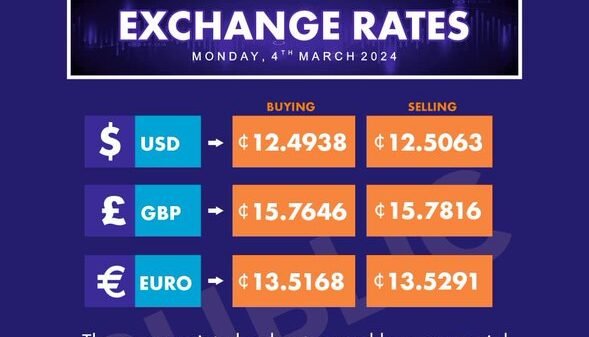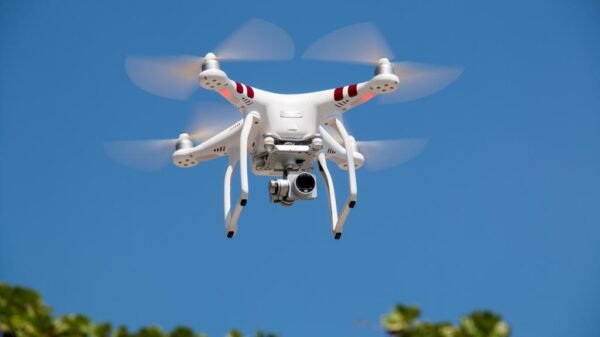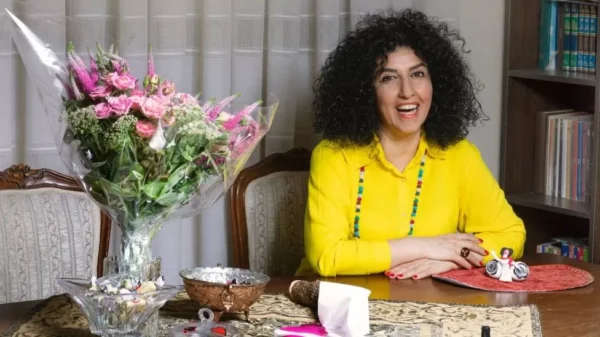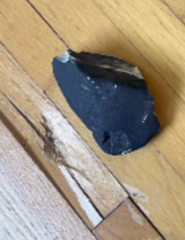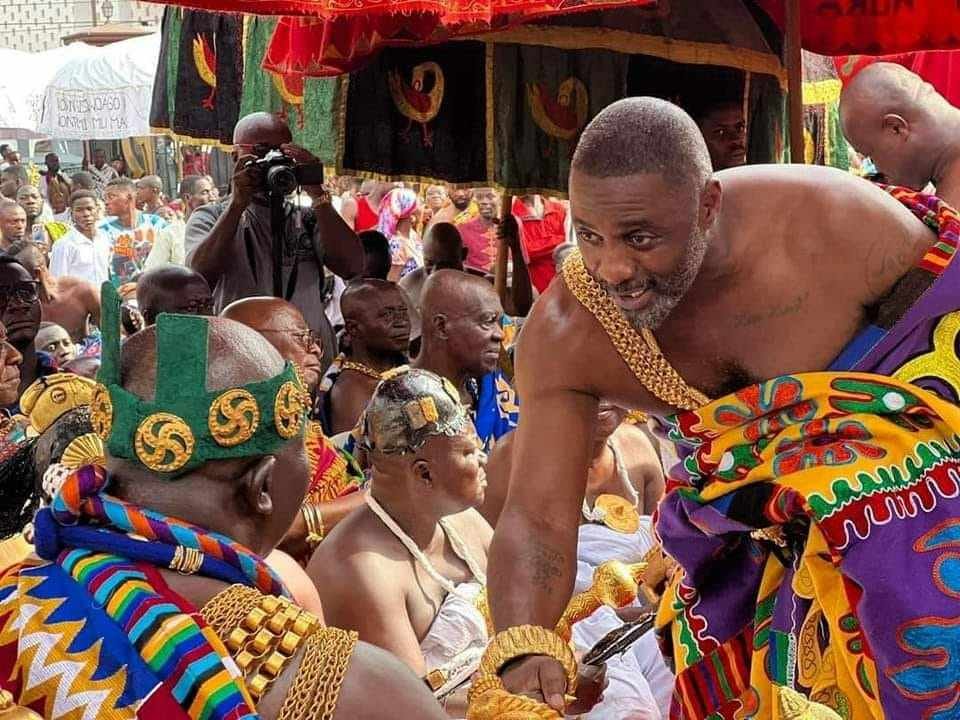Ghana is a country known for its vibrant culture and diverse traditional festivals. These festivals are celebrated throughout the year, with each festival showcasing the unique beliefs and customs of the people in the region. In this guide, we’ll take you on a journey through Ghana’s traditional festivals, month by month.
Each festival is unique in its own way and reflects the beliefs and customs of the people in the region.
These festivals provide a great opportunity for locals and tourists to come together and celebrate the rich cultural heritage of Ghana.
Table of Contents
January:
Akwasidae – Celebrated by the Ashanti people to honor their ancestors and ask for blessings; Location: Kumasi, Ashanti Region; Date: Every 6th Sunday.
Edina Bronya – Celebrated by the people of Elmina as a homecoming event for the community; Location: Elmina, Central Region; Date: December 30th to January 4th.
Begum – Celebrated by the people of the Gonja Kingdom as a thanksgiving ceremony for a bountiful harvest; Location: Yapei, Gonja Kingdom, Northern Region; Date: First week of January.
Tingana (or Tengana) – Celebrated by the people of the Upper East Region as a harvest festival and purification ceremony; Location: Bongo, Upper East Region; Date: Second week of January.
Paragbeile – Celebrated by the people of the Northern Region as a ceremony of thanksgiving and purification; Location: Bimbilla, Northern Region; Date: Mid-January.
February:
Dzawuwu – Celebrated by the people of Alavanyo in the Volta Region to commemorate the victory of their ancestors in a battle; Location: Alavanyo, Volta Region; Date: First weekend in February.
Akwasidae – Celebrated by the Ashanti people to honor their ancestors and ask for blessings; Location: Kumasi, Ashanti Region; Date: Every 6th Sunday.
Kuure – Celebrated by the people of the Upper East Region to thank the gods for a bountiful harvest and seek protection for the coming year; Location: Bongo, Upper East Region; Date: Second week of February.
Paragbeile – Celebrated by the people of the Northern Region as a ceremony of thanksgiving and purification; Location: Bimbilla, Northern Region; Date: Mid-January.
March:
Adae Kese – Celebrated by the Ashanti people to honor their ancestors and ask for blessings; Location: Kumasi, Ashanti Region; Date: First Sunday of March.
Ngmayem – Celebrated by the people of the Eastern Region to mark the end of the harvest season and to thank the gods for a bountiful harvest; Location: Somanya, Eastern Region; Date: First weekend in March.
Kpledjoo – Celebrated by the people of the Anlo in the Volta Region to honor their ancestors and seek their protection; Location: Anloga, Volta Region; Date: First week of March.
Damba festivals – Celebrated by the people of the Northern Region to commemorate the birth and life of the Islamic Prophet Muhammad; Location: Various locations in the Northern Region; Date: Throughout the month of March.
Gologo (or Golib) – Celebrated by the people of the Upper East Region to thank the gods for a bountiful harvest and seek their protection; Location: Bongo, Upper East Region; Date: Mid-March.
April:
Hogbetsotso – Celebrated by the people of the Anlo in the Volta Region to commemorate their migration from present-day Togo to Ghana; Location: Anloga, Volta Region; Date: First Saturday in April.
Apoo – Celebrated by the people of the Nzema in the Western Region as a purification ceremony and to seek protection from evil spirits; Location: Axim, Western Region; Date: First weekend in April.
Ngmayem ends – Celebrated by the people of the Eastern Region to mark the end of the harvest season and to thank the gods for a bountiful harvest; Location: Somanya, Eastern Region; Date: First weekend in April.
Kpledjoo – Celebrated by the people of the Anlo in the Volta Region to honor their ancestors and seek their protection; Location: Anloga, Volta Region; Date: First week of April.
Jintigi Fire – Celebrated by the people of the Upper West Region to mark the end of the dry season and to purify their communities; Location: Wa, Upper West Region; Date: Mid-April.
Gologo (or Golib) – Celebrated by the people of the Upper East Region to thank the gods for a bountiful harvest and seek their protection; Location: Bongo, Upper East Region; Date: Mid-March.
Zumbenti – Celebrated by the people of the Frafra in the Upper East Region to honor their ancestors and seek their protection; Location: Tongo, Upper East Region; Date: Last weekend in April.
Godigbeza – Celebrated by the people of the Anlo in the Volta Region to honor their ancestors and seek their protection; Location: Anloga, Volta Region; Date: Last week of April.
May:
Aboakyir – Celebrated by the people of the Efutu in the Central Region to commemorate the founding of the town and the capture of the first deer by their ancestors; Location: Winneba, Central Region; Date: First Saturday in May.
June:
Gyenpren – is celebrated by the people of Kwahu Tafo in the Eastern Region of Ghana. It is usually celebrated in the month of June.
Dzimbi – is celebrated by the people in the Upper East and Upper West regions of Ghana. It is usually celebrated in the month of June.
July:
Bakatue – Celebrated by the chiefs and people of Elmina in the Central Region to mark the beginning of a new fishing season and to ask for blessings from the gods of the sea; Location: Elmina, Central Region; Date: First Tuesday in July.
Kundum – Celebrated by the Ahanta and Nzema people in the Western Region to thank their gods for a bountiful harvest and to ask for blessings for the upcoming year; Location: Various towns and villages in the Western Region; Date: Celebrated for several weeks from July to August, with each community holding its own Kundum festival on different dates.
August:
Homowo – Celebrated by the Ga people of Accra to honor their ancestors and ask for blessings for the upcoming year; Location: Various towns and villages in the Greater Accra Region; Date: First week in August.
Akwambo (or Akwan-bo) – Celebrated by the people of Agona in the Central Region to mark the end of the planting season and to ask for blessings for the upcoming harvest; Location: Agona, Central Region; Date: Second Thursday in August.
Odambea – Celebrated by the people of Anlo in the Volta Region to honor their ancestors and to pray for good health and prosperity; Location: Anlo, Volta Region; Date: Third week in August.
Asafotu-fiam – A military festival celebrated by the people of the Ada Traditional Area in the Greater Accra Region to commemorate their victory over the Great Ashanti Empire and to honor their ancestors; Location: Ada, Greater Accra Region; Date: Last weekend in August.
Agbamevoza (Kente festival) – Celebrated by the people of Agotime-Ziope in the Volta Region to showcase their rich cultural heritage, particularly their world-renowned Kente cloth; Location: Agotime-Ziope, Volta Region; Date: Last week in August.
Apenorto (or Afernorto) – Celebrated by the people of Leklebi-Duga in the Volta Region to mark the end of the farming season and to thank their ancestors for a bountiful harvest; Location: Leklebi-Duga, Volta Region; Date: Last week in August.
Apatwa – Celebrated by the people of Kwahu in the Eastern Region to mark the end of the farming season and to ask for blessings for the upcoming year; Location: Kwahu, Eastern Region; Date: Last weekend in August.
Edim Kese – Celebrated by the people of Essikado in the Western Region to honor their ancestors and to ask for blessings for the upcoming year; Location: Essikado, Western Region; Date: Last Saturday in August.
September:
Kundum Festival: A colorful harvest festival celebrated by the Ahanta people of the Western Region. It is marked with drumming, dancing, and feasting.
Location: Western Region; Date: September 2023 (Exact date to be announced by the traditional authorities).
Fetu Afahye Festival: A festival that is celebrated by the people of Cape Coast in the Central Region. It is marked with processions, drumming, dancing, and purification ceremonies. Location: Cape Coast, Central Region; Date: September 2-7, 2023
Odwira Festival: Celebrated by the Akwapim and Akuapem people in the Eastern Region, the festival is marked with a durbar of chiefs, purification rites, and a display of rich culture and tradition. Location: Eastern Region; Date: September 8, 2023.
OhumKyire Festival: Celebrated by the people of Techiman in the Brong-Ahafo Region, the festival is marked with a procession of chiefs, drumming, and purification rituals. Location: Techiman, Brong-Ahafo Region; Date: September 10, 2023.
Kobine Festival: Celebrated by the Kasena people in the Upper East Region, the festival is marked with drumming, dancing, and the recital of oral history. Location: Upper East Region; Date: September 11, 2023.
Afadzato Togbo Tsikeke Festival: A yam festival celebrated by the people of the Afadzato Traditional Area in the Volta Region. It is marked with the display of traditional music, dance, and food. Location: Volta Region; Date: September 15-20, 2023.
Asogli Te Za Festival: A yam festival celebrated by the people of Asogli in the Volta Region. It is marked with the cooking and eating of yam, and drumming and dancing. Location: Volta Region; Date: September 21, 2023.
Akwantutenten Festival: A festival celebrated by the people of Techiman in the Brong-Ahafo Region to mark the end of the farming season. It is marked with a grand durbar of chiefs, drumming, and dancing. Location: Techiman, Brong-Ahafo Region; Date: September 23-24, 2023.
October:
Feok: Celebrated by the people of the Builsa area, the Feok festival is a time to offer thanks to the gods and ancestors for a bountiful harvest. The festival features drumming and dancing, as well as the slaughter of animals for feasting. Location: Builsa. Date: October.
Foyawoo: Celebrated by the Ahanta people of the Western Region, the Foyawoo festival is a time to remember the dead and to offer thanks to the gods for a successful harvest. The festival features drumming, dancing, and the sprinkling of cornmeal on graves. Location: Western Region. Date: October.
Munufie: Celebrated by the people of the Ada area, the Munufie festival is a time to give thanks to the gods and ancestors for a successful harvest. The festival features drumming, dancing, and the offering of food and drinks to the gods. Location: Ada. Date: October.
Fofie: Celebrated by the people of the Ga Mashie area, the Fofie festival is a time to celebrate the yam harvest. The festival features a yam procession and the sprinkling of mashed yam on the floor to appease the gods. Location: Ga Mashie. Date: October.
Odwira: Celebrated by the Akans of the Ashanti region, the Odwira festival is a time to purify the community and to offer thanks to the gods for a successful harvest. The festival features drumming, dancing, and the re-enactment of historical events. Location: Ashanti Region. Date: October.
Ngmayem: Celebrated by the Anlo-Ewe people of the Volta Region, the Ngmayem festival is a time to offer thanks to the gods and ancestors for a bountiful harvest. The festival features drumming, dancing, and the carrying of ancestral stools. Location: Volta Region. Date: October.
Boaram: Celebrated by the people of the Techiman area, the Boaram festival is a time to give thanks to the gods and ancestors for a successful harvest. The festival features drumming, dancing, and the offering of food and drinks to the gods. Location: Techiman. Date: October.
Kobine: Celebrated by the people of the Gonja area, the Kobine festival is a time to offer thanks to the gods and ancestors for a successful harvest. The festival features drumming, dancing, and the slaughtering of animals for feasting. Location: Gonja. Date: October.
Sasadu: Celebrated by the people of the Zabrama area, the Sasadu festival is a time to offer thanks to the gods and ancestors for a successful harvest. The festival features drumming, dancing, and the sprinkling of flour on the ground to appease the gods. Location: Zabrama. Date: October.
Velukusi: Celebrated by the people of the Upper East Region, the Velukusi festival is a time to offer thanks to the gods and ancestors for a successful harvest. The festival features drumming, dancing, and the offering of food and drinks to the gods. Location: Upper East Region. Date: October.
Nkyidwo: Celebrated by the people of the Akyem Abuakwa area, the Nkyidwo festival is a time to offer thanks to the gods and ancestors for a successful harvest. The festival features drumming, dancing, and the slaughtering of animals for feasting. Location: Akyem Abuakwa. Date: October.
November:
Fetu Afahye: This is a festival celebrated by the chiefs and people of Cape Coast in the Central Region. It is a thanksgiving festival to the gods of the land for a successful fishing season, good health, and abundant harvest. Date: First Saturday in November.
Kwafie: This festival is celebrated by the people of the Anlo State in the Volta Region. It is a thanksgiving festival to the gods for their protection, guidance, and good health. The highlight of the festival is the display of the famous Egunu masquerade. Date: First Saturday in November.
Akwantukese: This is a festival celebrated by the people of the Agave Traditional Area in the Volta Region. It is a thanksgiving festival to the gods for a bountiful harvest and good health. Date: First Saturday in November.
Kloyo Sikplemi: This festival is celebrated by the people of the Avatime Traditional Area in the Volta Region. It is a purification and thanksgiving festival to the gods for a successful farming season, good health, and protection. Date: First Saturday in November.
Boaram: This is a festival celebrated by the people of the Bongo Traditional Area in the Upper East Region. It is a thanksgiving festival to the gods for good health, protection, and a bountiful harvest. Date: First Saturday in November.
Samanpiid: This festival is celebrated by the people of the Kusasi Traditional Area in the Upper East Region. It is a purification and thanksgiving festival to the gods for a successful farming season, good health, and protection. Date: First Saturday in November.
Kakube: This is a festival celebrated by the people of the Talensi Traditional Area in the Upper East Region. It is a thanksgiving festival to the gods for a bountiful harvest and good health. Date: First Saturday in November.
Hogbetsotso: This is a festival celebrated by the people of Anloga in the Volta Region. It is a commemoration of the migration of the Anlo people from Notsie in present-day Togo. Date: First Saturday in November.
Sometutuza: This festival is celebrated by the people of the Zabzugu Traditional Area in the Northern Region. It is a thanksgiving festival to the gods for a successful farming season, good health, and protection. Date: First Saturday in November.
Ayimagonu: This is a festival celebrated by the people of the Ziavi Traditional Area in the Volta Region. It is a thanksgiving festival to the gods for a bountiful harvest and good health. Date: First Saturday in November.
Dodoleglime (or Ve-Lukusi): This is a festival celebrated by the people of the Ve Traditional Area in the Volta Region. It is a thanksgiving festival to the gods for good health, protection, and a bountiful harvest. Date: First Saturday in November.
Kpalikpakpa: This festival is celebrated by the people of the Gbi Traditional Area in the Volta Region. It is a purification and thanksgiving festival to the gods for good health, protection, and a successful farming season. Date: First Saturday in November.
Amu brown rice: This is a festival celebrated by the people of the Shai Traditional Area in the Greater Accra Region. It is a thanksgiving festival to the gods for a successful farming season and good health. The highlight of the festival is the display of traditional dances and the cooking of Amu brown rice.
Gbidukor: This is a festival celebrated by the people of the Gonja Traditional Area in the Northern Region. It is a thanksgiving festival to the gods for a bountiful harvest. The festival involves the sacrifice of animals, pouring of libation, and the display of traditional dances.
Zendo Glimetotoza: This is a festival celebrated by the people of the Anlo Traditional Area in the Volta Region. It is a purification and thanksgiving festival celebrated to purify the community and thank the gods for a successful farming season. The festival is characterized by the sacrifice of animals, the performance of traditional dances, and the pouring of libation.
December:
The Damba Festival: The Damba Festival is a Muslim festival celebrated by the Dagomba people of Northern Ghana. It commemorates the birth of the Prophet Mohammed and involves dancing, drumming, and horse racing. The festival is usually observed in November, but the exact date depends on the lunar calendar.
Kwafie: Kwafie is a harvest festival celebrated by the people of Wenchi in the Brong Ahafo region of Ghana. It is a time to give thanks to the gods for a good harvest, and it involves traditional dances, music, and drumming. Kwafie is usually celebrated in the first week of November.
Samanpiid: Samanpiid is a festival celebrated by the people of the Builsa area in the Upper East region of Ghana. It is a time to give thanks to the gods for the protection of the people and the crops during the farming season. The festival is marked by a procession of people dressed in traditional clothing and carrying gifts for the gods. Samanpiid is typically celebrated in November, but the exact date varies from year to year.
As you can see, there are many traditional festivals celebrated throughout Ghana, each with its own unique history and significance. Attending these festivals is a great way to experience the rich cultural heritage of Ghana and to see the country in a different light.
Whether you’re a local or a tourist, we hope this guide to Ghana’s traditional festivals has been helpful in planning your travels. From the famous Homowo Festival to the lesser-known Feok Festival, there is always something to celebrate in Ghana. So pack your bags, grab your camera, and get ready to experience the vibrant and colorful traditional festivals of Ghana.
Source: Ghanaonline.net




